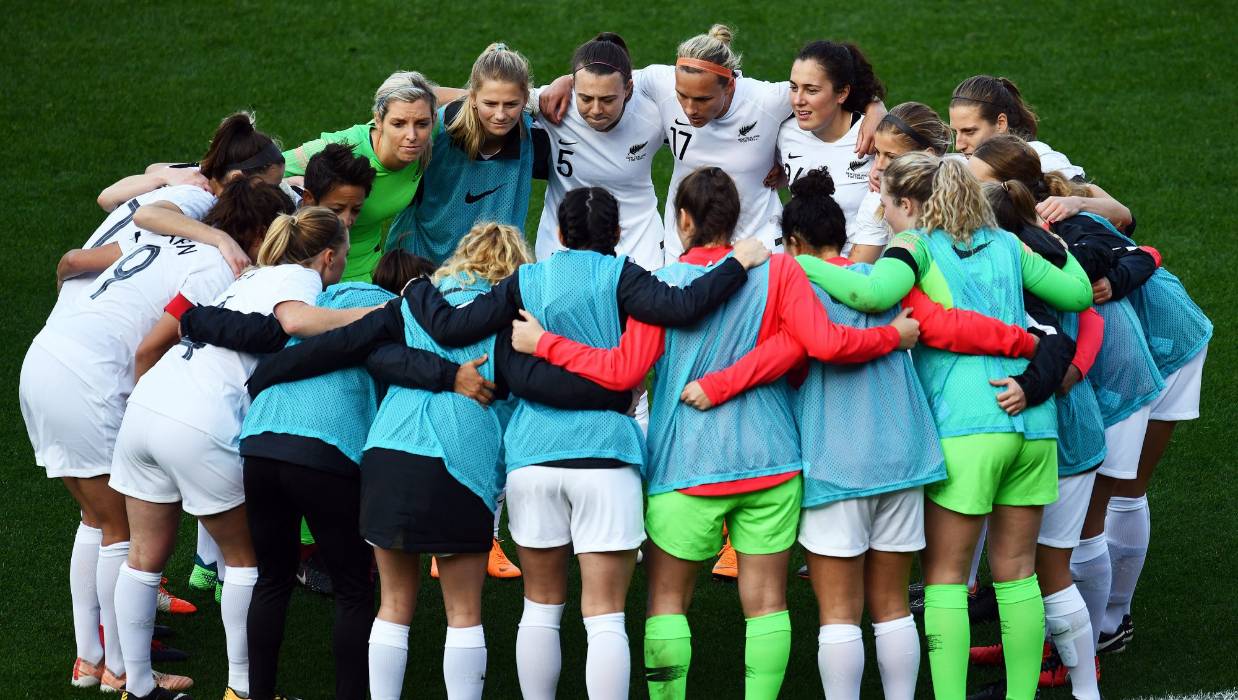The Reviews Review
1Yesterday, Minister for Sport Grant Robertson commented on the state of the culture and general high performancce environment in this country. He mentioned how a ‘win at all costs mentality’ had driven us to the point where athlete wellbeing was not a top priority, and that the health of athletes is effectively a game of Russian roulette.
All this follows a tumultuous 12-18 month period which has seen formal reviews undertaken in the culture of several sporting codes, either as a result of underperformance or athlete concerns.
I tend to agree with the Minister on this one, but what intrigues me is the reason why these situations are only now being taken seriously. No one can be naive enough to think that these pressured environments are anything new.
I don’t know if any of you listen to RadioSport Extra 2 on iHeartRadio, but at the moment, they’re playing a loop of their top sport stories from 2018. The Football Ferns, the Silver Ferns and Cycling New Zealand reports all make an appearance. In the soundbites of the Football Ferns section, Phillipa Muir, the author of the independent review into New Zealand Football, is quoted as saying cost-cutting lead to Andreas Heraf holding the dual roles of Ferns coach and technical director of NZF. The notion of cost-cutting in national sporting organisations (NSOs) detracting from pastoral care is reflected is organisations around the country, in any industry. HR isn’t taken seriously until shit hits the fan. It’s often an ambulance-at-the-bottom-of-the-cliff situation, and football and cycling have seen the results of that.
The thing is, these behaviours and cultures aren’t new. These situations, these environments are everywhere and have been swept under the carpet for a long time. Not to get my ragey feminist on (it’s been a while), but mostly that’s been due to the “boys club” mentality and male-dominated hierarchies in many institutions – the ‘man up or get out’ approach. But that doesn’t wash anymore.
Why? Overall, our society is now generally more ‘woke’. Social media is a thing now, giving athletes a voice and a platform they didn’t have in the past. And I think organisations and sports teams see the backlash when things go wrong in society – there’s increased public outcry now. They’re willing to be seen to be doing the right thing, and note – that doesn’t always translate to actually doing the right thing.
Robertson said we need to look at athlete welfare “now more than ever”. I don’t think this is true. I think athlete welfare should’ve always been front of mind, but what has brought it to the fore is the rise of professionalism. Sport’s a full time job for these guys now, and it’s a business for NSOs. Some of the good ones have brought in more professional governance structures to eradicate the lingering old ways. The demands placed on professional sportspeople are incredible, and we’re perhaps only just getting through the first generation of full time, hardcore, professional sportspeople and finding out what toll it’s taken on their mental and physical health during and post-career. While All Blacks in bygone years may have faced similar pressures around their performance, the frequency of those pressures wasn’t as high. Your average modern All Black now has to play a long Super Rugby season, a competitive Rugby Championship tournament, the occasional Mitre 10 Cup game, and go on an Northern Hemisphere tour. With trainings and sponsorship commitments on top of performances, the demands of the modern player to be perfect at all times are exponentially greater than in the past.
We can get out the small violins for these athletes, given the size of their pay packets. Or, we can stop and say that no massive bank balance protects someone from mental health conditions, bullying, or systemic governance failures. Rugby is one of the most well-resourced sports in the country, which leaves one questioning what the smaller sports are capable of providing in terms of support. Athletes who love their sport and love playing for their country probably tolerate unreasonable pressures and environments just because they don’t want to lose their place in the squad – which is both totally understandable, and totally unacceptable.
Athletes are also people, and in the cut-throat world of professional sport, NSOs have a duty of care to provide them the best possible environment in which to succeed. We’re quick to dismiss athletes when they’re no longer performing, and due to that, their employers should be providing every opportunity for them to perform the best they can.
We all want Kiwi teams to perform well, and sometimes, the best performances require honest and often uncomfortable conversations. But it’s only in a culture of respect, integrity and transparency that these conversations are effective. In the long term, anyway. The age of the ranting, arm-waving, cussing-in-your-face coach is long gone, and these sporting reviews are only shining a light on what’s been in place for a long time.
It’s always been unacceptable. Now it’s just unacceptable and public.
Follow Heather on Twitter


Nicely done. Crikey, can even forgive the use of ‘woke’ because of its strong connotation to social justice! 🙂